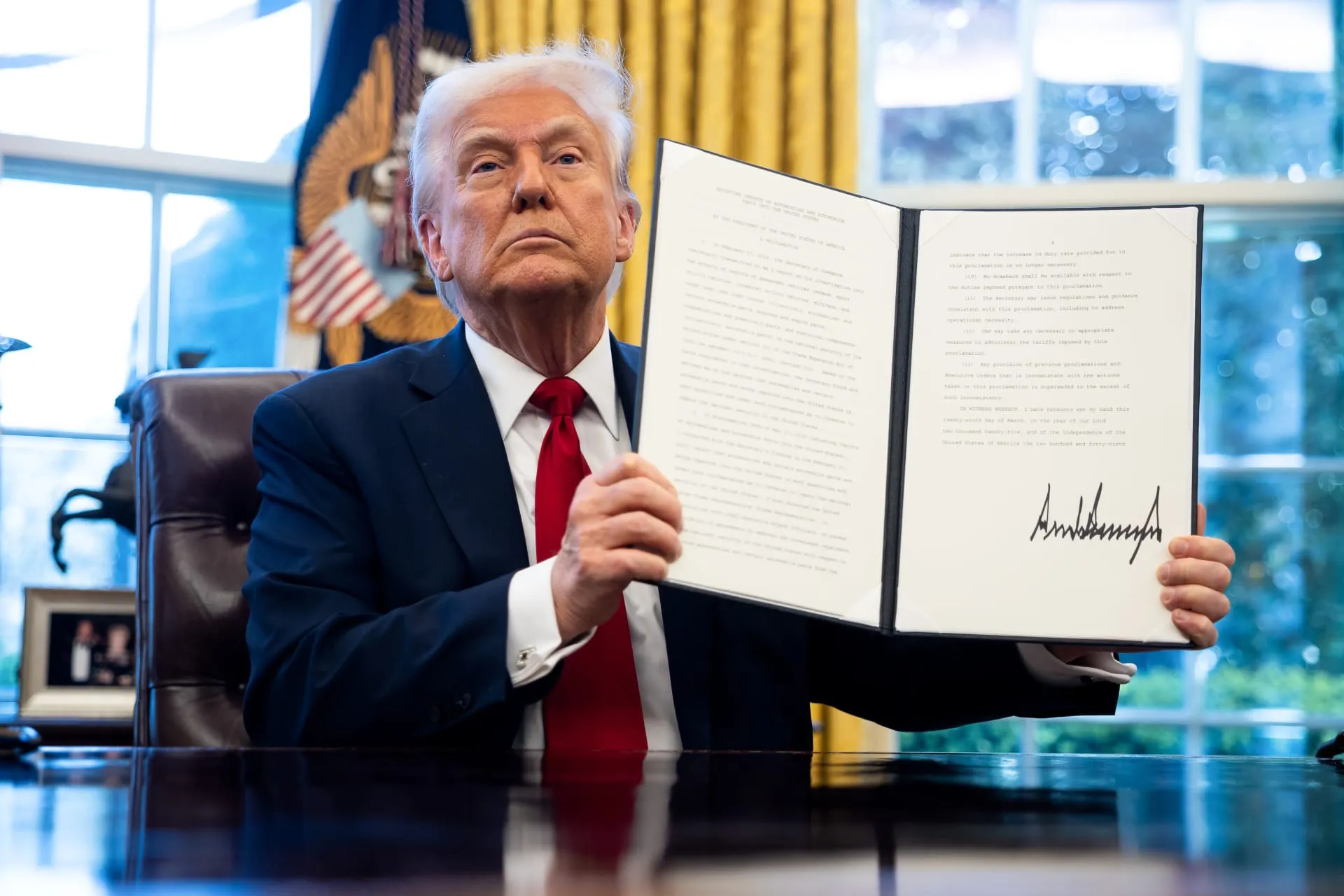Trump imposes 25% duties on imported cars in the US: what it means for consumers

President Donald Trump has announced the imposition of 25% duties on all foreign-made cars and auto parts imported into the United States. This decision represents a significant escalation in the global trade fight and could significantly impact both automakers and consumers.
The decision represents a significant escalation in the global trade fight and could significantly impact both automakers and consumers.
Details of the new tariff plan
The new duties will take effect on April 3, 2025 and will apply to all imported cars and light trucks, including SUVs. The President has confirmed that these tariffs will be permanent throughout his second term. The duties were imposed through an executive order and will affect key foreign trading partners of the U.S. auto industry, such as South Korea, Japan, Mexico, Canada, and Germany.
The tariffs will apply to all imports of automobiles and light trucks, including SUVs.
«If you manufacture cars in the United States, there will be no duties»” Trump told reporters in the Oval Office. He added that the measure «will lead to the building of a lot of plants in the United States, in this case automobile plants, and you will see numbers you haven’t seen before, both in terms of employment and in terms of production».
He added.
Impact on prices and consumers
According to experts, the new duties could significantly increase the cost of automobiles for U.S. consumers:
- A study by the U.S. International Trade Commission found that a 25% duty would reduce car imports by about 74% and increase average car prices by 5%.
- According to Cox Automotive, the duties could increase the cost of cars made in Mexico or Canada by about $6,000.
- For cars made in the U.S. using imported parts, the duties are expected to increase the price by about $3,000.
Mary Lovely, an economist and senior fellow at the Peterson Institute for International Economics, said: «We will see a significant increase in car prices and a reduction in choice…Such taxes will hit the middle class and working class hardest». She added that more families won’t be able to afford a new car, where prices already average about $49,000, forcing them to use aging vehicles longer.
She added.

Market and automaker reaction
The announcement of the new duties has already had an impact on the stock market:
- General Motors shares fell 8% in after-hours trading
- Ford shares and U.S. shares of Stellantis (Chrysler’s parent company) are down about 4.5%
- In Asia, shares of Toyota Motor, Honda Motor and Hyundai Motor were down 3-4%
The United Auto Workers union, which represents factory workers at Detroit’s three largest automakers, applauded Trump’s decision:
The United Auto Workers union, which represents workers at the plants of Detroit’s three largest automakers, said it welcomed Trump’s decision.
«Thanks to these duties, thousands of good-paying auto industry jobs could return to the working class across the United States within months simply by adding more shifts and production lines at several underutilized auto plants»” UAW President Sean Fain said.
Long-term implications
Experts predict that by mid-April there could be disruptions in «virtually all» U.S. auto production, potentially cutting production by 20,000 vehicles a day, equivalent to about a 30 percent drop in volume.
An estimated 20,000 vehicles a day, equivalent to about a 30 percent drop in volume, could be disrupted by mid-April.
The auto industry operates on a global scale and has evolved around trade agreements that allow factories in different countries to specialize in certain parts or types of vehicles. New duties could severely disrupt these supply chains, especially in North America, where trade agreements have linked national automotive sectors since the 1960s.
The new duties could severely disrupt these supply chains, especially in North America, where trade agreements have linked national automotive sectors since the 1960s.
The U.S. imported $214 billion worth of passenger vehicles in 2024. Mexico remains the largest exporter of automobiles to the U.S., followed by South Korea, Japan, Canada and Germany.








